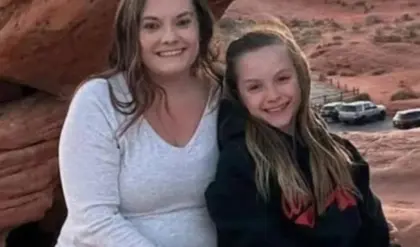Making it as an actor is an uphill struggle that requires plenty of sacrifices, which made things especially difficult for Johnny Depp when he didn’t really want to be an actor in the first place before he openly rebelled against the role in 21 Jump Street that made him famous.
The future A-lister initially moved to Los Angeles to pursue a music career with his band, The Kids, but unfortunately for the wannabe rockstars, they discovered that experiencing mild success in Florida was entirely irrelevant when it came to breaking into one of the hottest and most densely populated local scenes in America.

The Killers cover Yeah Yeah Yeahs ‘Maps’ at 2024’s Govenor’s Ball in New York City
The ball on acting becoming his profession of choice only began rolling when his then-wife Lori Ann Allison introduced him to a freshly-rebranded and well-connected young thespian named Nicolas Cage, who introduced Depp to an agent so that he could start trying to book gigs
Thanks to the assist lent by Cage, Depp ended up winning the part of Glen Lantz in Wes Craven’s A Nightmare on Elm Street, making an unforgettable big screen debut when he became a blood-splattered victim of Robert Englund’s iconic Freddy Krueger in one of the decade’s most popular slashers.
Wasting little time trying to elevate himself to headline status, Depp’s second-ever film appearance saw him play one of the two leads in the 1985 comedy Private Resort opposite Rob Morrow. A skin-flashing teen romp that marked the third and final chapter in producer R Ben Efraim’s spiritual sex-fuelled trilogy after Private Lessons and Private School, it was not a hit.
In addition to taking a battering from critics, Private Resort was a dismal failure at the box office, where it barely scraped together $330,000 in domestic ticket sales. On either side of that movie, he’d worked with Craven on a classic and collaborated with Oliver Stone on the ‘Best Picture’-winning war drama Platoon, with his next two features after that coming in John Waters’ Cry-Baby and Tim Burton’s Edward Scissorhands.
Suffice to say, it was the outlier of his early filmography, with Depp and Morrow starring as a pair of college buddies at a swanky resort who end up running afoul of a jewel thief seeking to heist the diamond necklace being sported by one of the hotel’s wealthiest residents. The results weren’t great, with Depp informing Lexington Herald-Leader that his first leading role came in “possibly the stupidest film ever made.”
Describing it as a “teen kind of exploitation, tits and ass and basic filthiness” movie, at least Depp never went in under the impression he was creating art. “What the fuck did I care?” he wondered aloud. “I had no aspirations.” Not yet, anyway, but he’d still managed to land two big screen parts within six months of moving to Los Angeles, which wasn’t a bad start.


